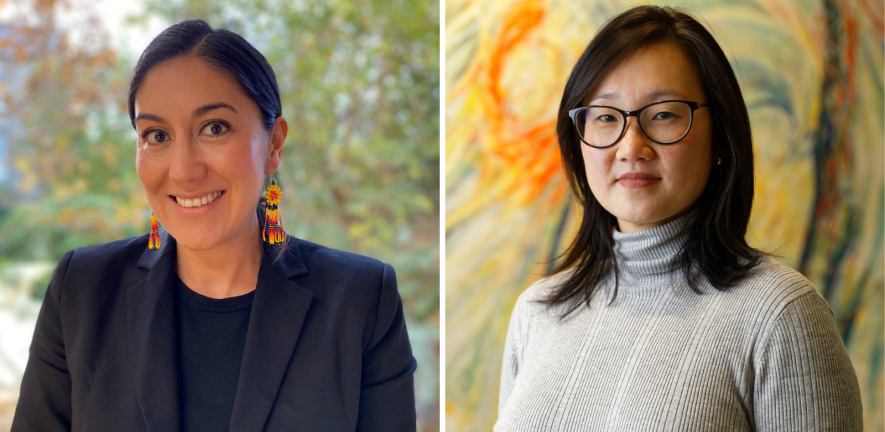
The awardees are Professor Rosana Collepardo-Guevara to support her ambitious research into chromatins, and Dr Jenny Zhang who researches the interface between materials and biology.
The grants are part of the European Union’s Horizon Europe programme. They are given to excellent scientists and scholars at the career stage to support them to pursue their most promising scientific ideas.
Professor Rosana Collepardo-Guevara
Rosana Collepardo-Guevara is Professor of Computational and Molecular Biophysics at the Yusuf Hamied Department of Chemistry and the Department of Genetics. She is a Winton Advanced Research Fellow in physics, a director of postgraduate education for chemistry and a Fellow of Clare College.
“My group investigates the connection between genome structure and function by developing computer models and algorithms that can bridge scales, from atoms to genes, while considering the extensive chemical diversity of the genome.
“We will investigate the transformative hypothesis of phase transitions in genome organisation, which suggests that our genes are organised inside functionally diverse liquid drops. We will develop new computer models to probe how the physical properties of these droplets are regulated, and how this may contribute to the tight regulation of our genes.
“I am truly delighted and proud of my team. This success is owed to the exceptional students and postdocs that I’ve had the privilege to supervise over the years, and also to the support of my mentors, collaborators, and family. This grant will give us the opportunity to keep exploring radical ideas.”
Dr Jenny Zhang
Dr Jenny Zhang is a BBSRC David Phillips Research Fellow at the Yusuf Hamied Department of Chemistry. She is a Fellow of Corpus Christi College.
“My team focuses on creating toolsets for rewiring the electrochemical pathways associated with living systems, particularly photosynthetic organisms. We do this to better understand fundamental bioenergetics and to manipulate them for various applications, such as in renewable energy generation.
“This ERC project develops an exciting new approach for accelerating the creation of synergistic interactions between biological and non-biological materials for highly efficient and robust energy exchange. The ultimate aim is to generate high performing biohybrid materials for clean energy generation.
“I am absolutely thrilled to be awarded this unique grant, which recognises all the key ingredients needed for innovation. This wonderful result was a cumulation of a lot of hard work, but also the generous support of my wonderful team and colleagues. I could not be more grateful for both the grant and the people I get to work with.”

